Sugar tax targets obesity: Your views
- Published
In Mexico, a 10% tax on sugar-sweetened drinks led to a 6% reduction in sales.
And now the Commons Health Select Committee says a similar policy in England would help to cut sugar consumption at least in the short term.
The government has consistently been opposed to introducing such a tax, and the drinks industry say poorest families will be hit the hardest.
But Tory MP Dr Sarah Wollaston, who chairs the cross-party committee, says it could cut rates of child obesity.
Currently, one in three primary school leavers are overweight or obese.
In October, Public Health England recommended:
a 20% tax on sugary drinks
a curb on the advertising of high-sugar products to children.
a "rebalancing" of price promotions, away cakes and biscuits and towards healthier foods
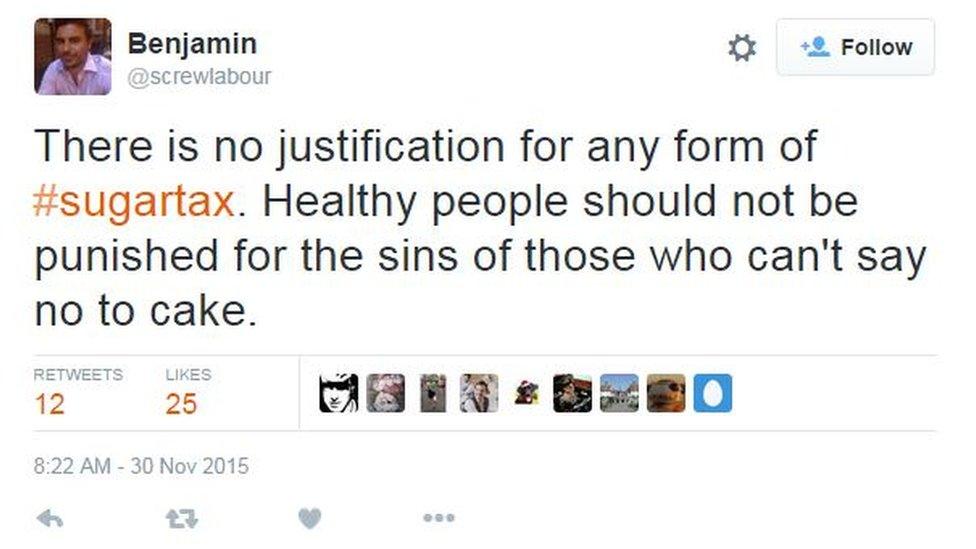
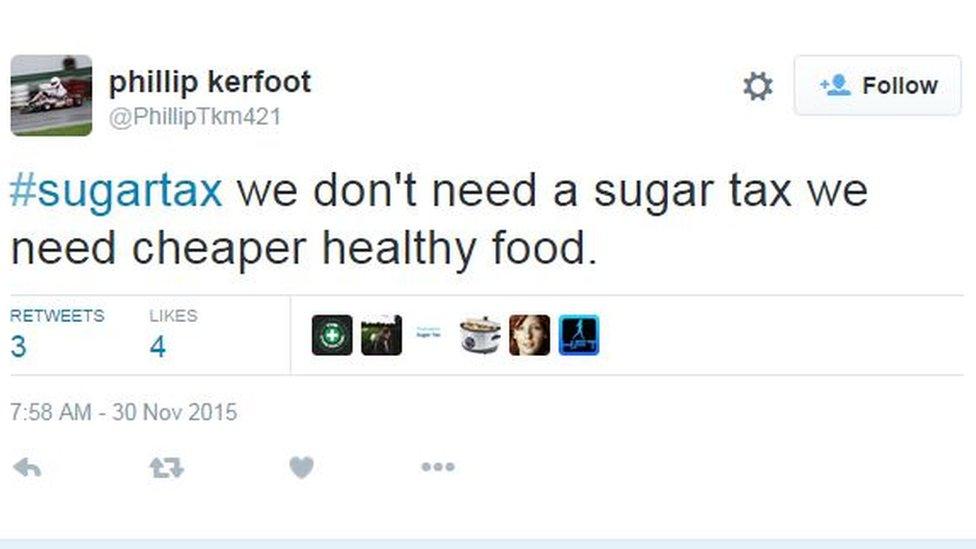
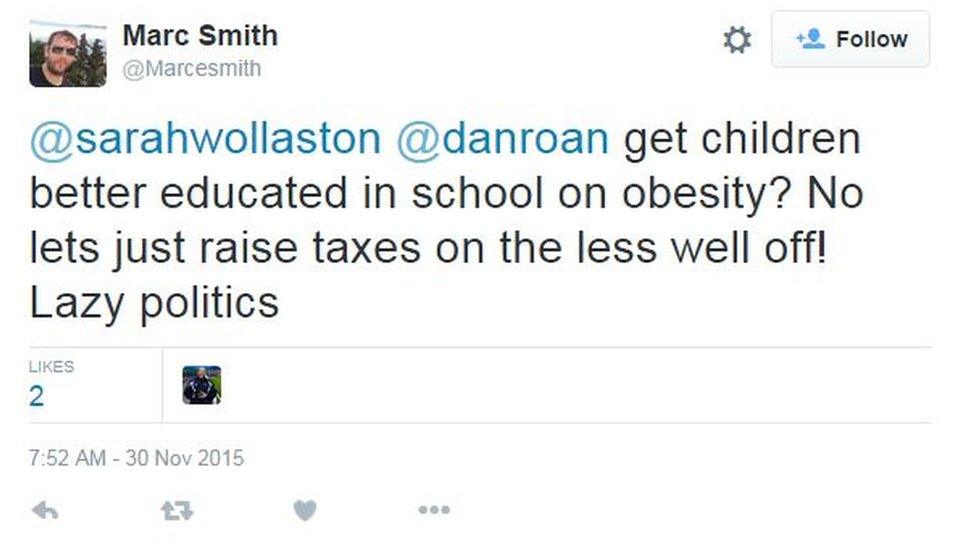
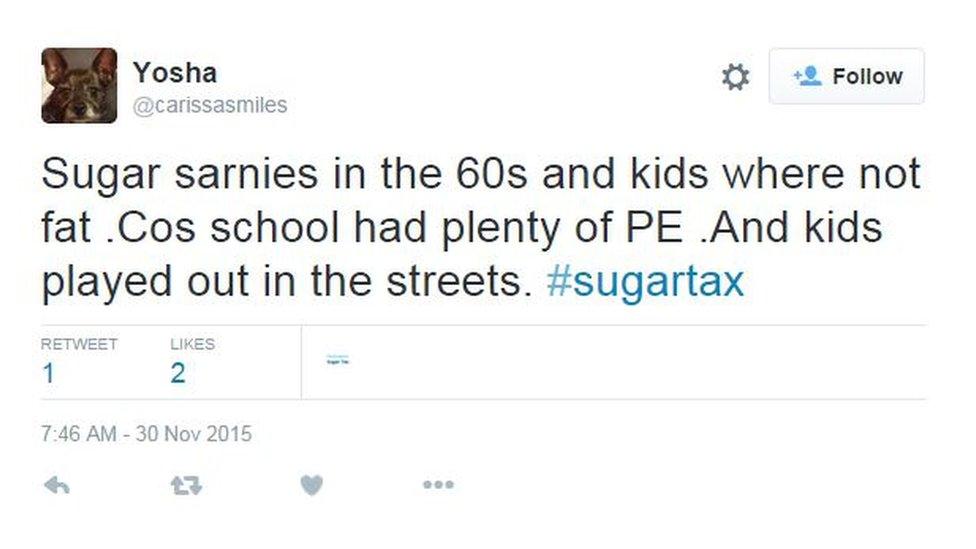
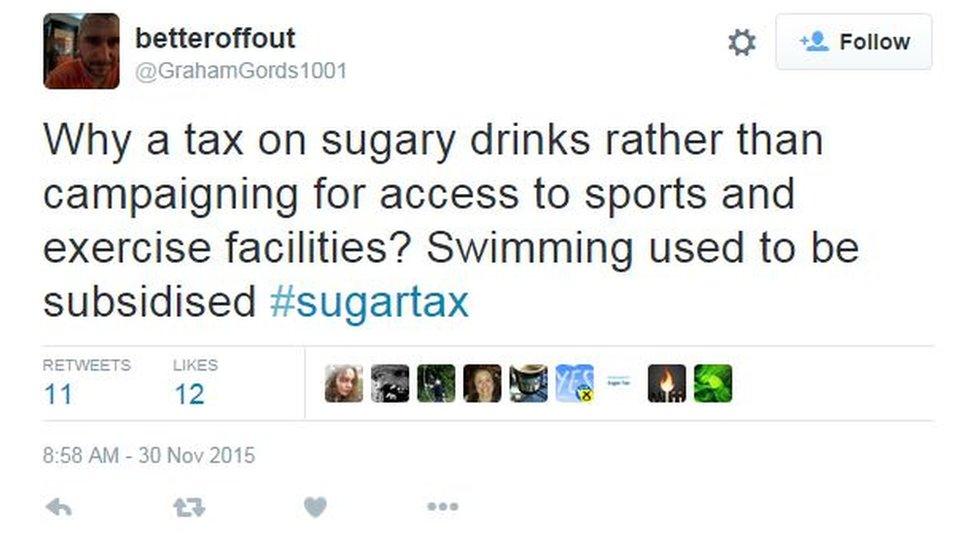
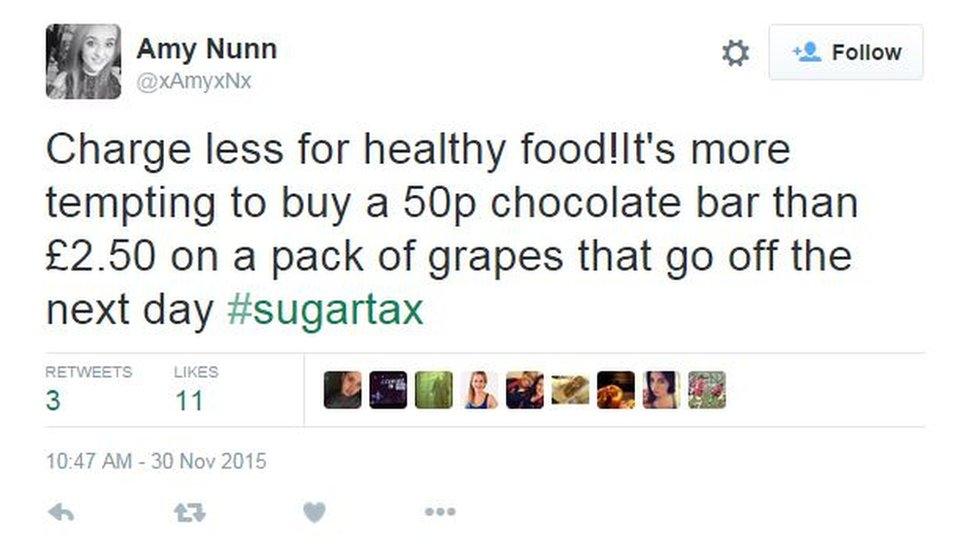
On social media, there has been overwhelming criticism of the idea. And this is reflected in emails received by the BBC.
Helen Attwood said: "I have had type-1 diabetes for 36 years.
"Type 1 is not linked to lifestyle choices and is an autoimmune disease.
"I have to buy sugar regularly, and sugary drinks in particular are great at treating hypo[glycemia]s - one of the issues associated with this disease.
"It doesn't seem fair that I have to pay more to treat a medical condition which I ended up with through no fault of my own. "
But there was also some cautious support for the proposed sugar tax.
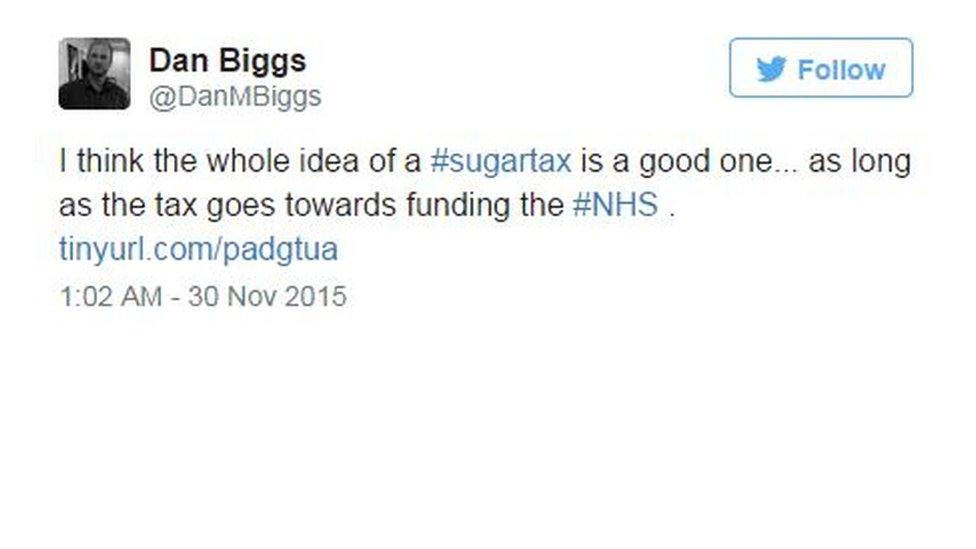
One anonymous emailer to the BBC said: "I agree something must be done.
"The school attended by my grandchildren has machines selling cans of fizzy drinks, crisps et cetera.
"It would be a good start if that stopped.
"The answer is not just banning things, it is educating young people.
"The more you ban them, the more they will want them."